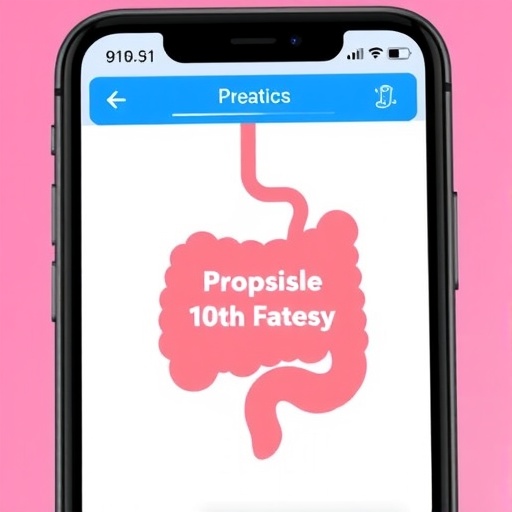In an era marked by rapid technological advancement, the intersection of healthcare and digital innovation continues to reshape the landscape of patient care. Recent developments in mobile applications specifically targeting chronic medical conditions are gaining traction, with one of the latest contributions coming from a team of researchers led by Park, Lee, and Cheon. Their pioneering work focuses on the creation of a user-needs based application designed to empower individuals suffering from inflammatory bowel disease (IBD).
Inflammatory bowel disease, encompassing conditions like Crohn’s disease and ulcerative colitis, presents numerous challenges for patients ranging from dietary restrictions to mental health issues. Traditional modes of management often leave patients searching for resources that can adequately address their specific needs and day-to-day concerns. Recognizing this gap, the researchers set out to develop a digital solution that not only streamlines basic health information but also offers personalized management strategies.
The foundation of this innovative application lies in its robust development process, which was meticulously crafted to ensure that the app truly reflects the users’ needs. The researchers employed participatory design methodologies, engaging with actual IBD patients throughout the development stage. This method not only enabled them to gather invaluable feedback but also fostered a sense of ownership among users, enhancing the overall effectiveness of the application.
Usability was a core component of the app’s design. The researchers conducted a rigorous usability study to evaluate how intuitive and accessible the app is for its intended user demographic. Feedback was collected through various means, including surveys and direct user interactions, providing a rich data set for analysis. Findings indicated that participants found the app easy to navigate, which is essential for individuals who may be dealing with the fatigue and discomfort that often accompany their condition.
A myriad of features was integrated into the app, each aiming to enhance the user experience and provide practical support. One notable element is the app’s ability to offer dietary recommendations tailored to individual preferences and dietary restrictions, which is a crucial aspect for those managing IBD. Additionally, the app includes medication reminders, symptom trackers, and educational resources, all aimed at helping users actively engage in their own care.
As chronic conditions often impact not just the physical health of an individual but also their psychological well-being, the app addresses mental health through integrated mindfulness and stress-reduction techniques. These features acknowledge the emotional burden that chronic illness can impose on patients, thereby aiming to foster a more holistic approach to health management.
Importantly, the application was designed with scalability in mind. Future updates and features can be easily implemented as user needs evolve and as new research becomes available. This adaptability is vital in the realm of digital health applications, where the landscape of technological capabilities is continually expanding.
The findings from this comprehensive study underscore the potential of digital health solutions in managing chronic conditions effectively. Patients expressed increased confidence in self-managing their health due to the resources and support provided through the app. This is crucial, as empowerment in chronic disease management can lead to improved health outcomes and enhanced quality of life.
Moreover, the project’s success challenges the stigma often associated with chronic diseases which are misunderstood or misrepresented in broader society. By normalizing conversations around IBD and providing direct support, the app not only serves as a useful tool but also as a conversation starter. It opens dialogue on an often-ignored subject, further promoting awareness and understanding among the general populace.
However, like all innovations in healthcare technology, the introduction of such an application brings forth questions regarding data privacy and security. The researchers have taken measures to ensure that user data is protected and confidentiality is maintained. Transparency in how data is used and stored is paramount in gaining users’ trust, especially in a healthcare context where sensitive information is involved.
As digital health continues to grow, collaboration among healthcare professionals, researchers, and technology developers becomes increasingly imperative. The app developed by Park, Lee, and Cheon is a prime example of such collaboration in action, demonstrating how diverse expertise can converge to create meaningful solutions for real-world health issues.
Looking ahead, the researchers emphasize the potential for their app to serve as a model for other chronic conditions beyond IBD. As the digital health field evolves, there is an opportunity to build on this foundation and design applications that cater to various patient populations, thereby enhancing the overall quality of care across the board.
In conclusion, the innovative application designed for individuals with inflammatory bowel disease is a testament to the power of user-centered design in healthcare technology. By prioritizing patient needs, the research team has not only developed a practical tool for managing a challenging condition but has also paved the way for future advancements in the digital health arena. As we continue into a future where digital solutions are integral to healthcare, this groundbreaking work stands out as a significant step toward a more personalized and effective approach to chronic disease management.
Subject of Research: Development of a user-needs based app for patients with inflammatory bowel disease.
Article Title: User-needs based app for patients with inflammatory bowel disease: development and usability study.
Article References:
Park, M., Lee, J., Cheon, J.H. et al. User-needs based app for patients with inflammatory bowel disease: development and usability study.
BMC Health Serv Res 25, 1285 (2025). https://doi.org/10.1186/s12913-025-13323-2
Image Credits: AI Generated
DOI: 10.1186/s12913-025-13323-2
Keywords: inflammatory bowel disease, digital health applications, user-centered design, patient empowerment, usability study.




